The Disgusting Food Museum in Berlin offers a unique opportunity to challenge one’s preconceptions about edible cuisine. Visitors can explore over 90 exhibits showcasing peculiar delicacies from around the world, gaining insights into the cultural and ecological factors shaping global food traditions. Whether sampling unconventional flavors at the Tasting Bar or pondering the future of sustainable nutrition, this museum promises an eye-opening experience that may just redefine what it means to have an "acquired taste."
Key Points
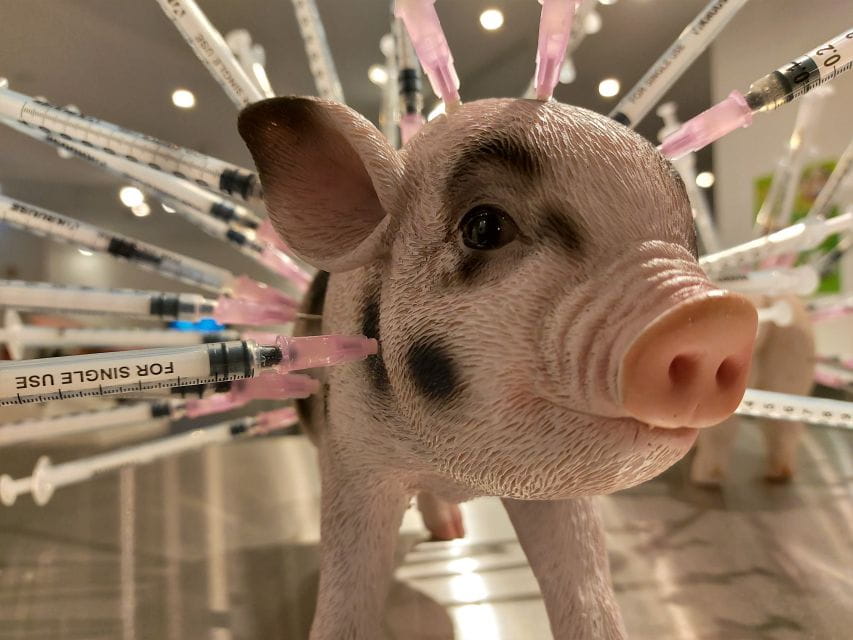
- Explore a curated collection of over 90 exhibits showcasing unusual and unappetizing foods from around the world at the Disgusting Food Museum in Berlin.
- Set out on a sensory adventure by sampling pungent delicacies like mite cheese and stinky fish at the museum’s Tasting Bar.
- Challenge your perceptions of what is considered edible and gain a deeper understanding of the diversity of global culinary traditions.
- Discover the environmental, ethical, and health implications of our current food systems through interactive stations and expert-led discussions.
- Book your entry tickets and tasting experience online to avoid long queues and enjoy a flexible, accessible, and family-friendly visit.
Overview of the Disgusting Food Museum
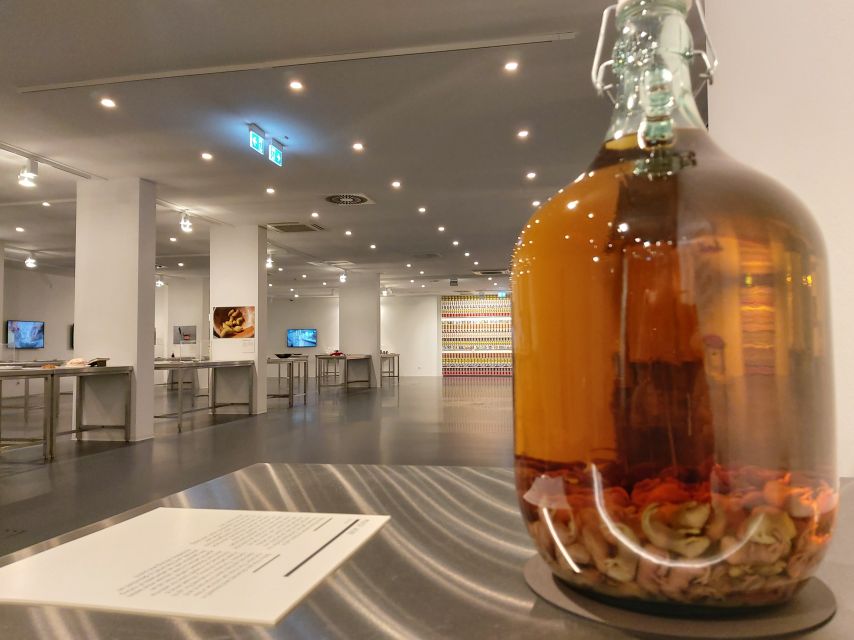
The Disgusting Food Museum in Berlin offers visitors a chance to explore over 90 exhibits showcasing some of the most unusual and unappetizing foods from around the world.
From mouse wine and mite cheese to stinky fish and worms, the museum provides a unique opportunity to learn about the diversity of food and nutrition.
Exhibits cover the production, consequences, and future of these so-called ‘disgusting’ foods, encouraging visitors to confront their own perceptions of what’s edible.
Whether you’re feeling adventurous or simply curious, the museum’s Tasting Bar allows you to sample some of these unusual delicacies for yourself, suitable for all ages.
It’s a truly eye-opening experience that challenges our preconceptions about food.
Here are more great tours and experiences we've reviewed in Berlin
Exhibits of Unusual and Unique Foods
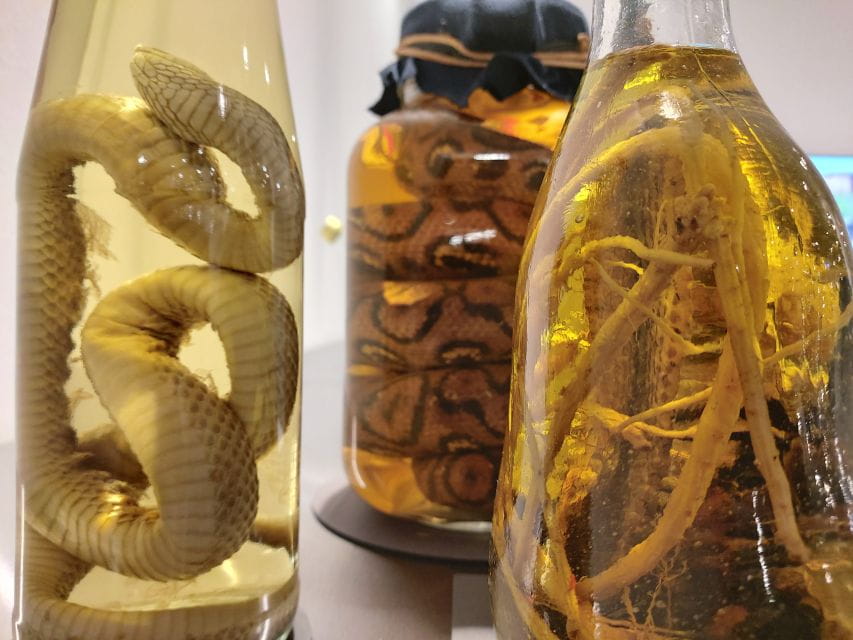
Among the museum’s diverse exhibits, visitors can expect to encounter a range of unusual and unique food items from around the world. These include everything from the pungent mouse wine of eastern Asia to the creepy-crawly mite cheese favored in certain European regions. The displays also showcase stinky fish from Scandinavia, as well as worms and other insects that are considered delicacies in various cultures.
| Food Item | Origin | Description |
|---|---|---|
| Mouse Wine | East Asia | Fermented wine made from mice |
| Mite Cheese | Europe | Cheese infested with cheese mites |
| Stinky Fish | Scandinavia | Pungent, fermented fish |
| Worms | Global | Edible insects and larvae |
These exhibits aim to challenge visitors’ perceptions of what is considered edible and delectable, inviting them to explore the diversity of global food traditions.
Exploring the Diversity of Nutrition
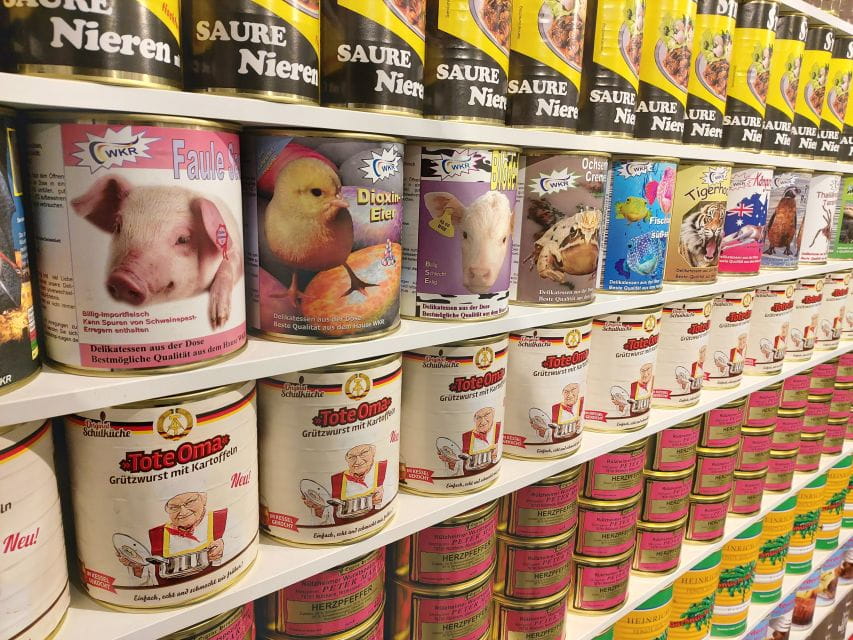
Alongside the museum’s captivating displays of unusual food items, visitors can explore the exhibits’ deeper engagement with the diversity of global nutritional practices and perspectives.
The museum delves into how different cultures and communities around the world have adapted their diets to local resources, traditions, and environmental conditions. Exhibits highlight how food choices are intimately tied to notions of sustainability, health, and ethics.
Visitors will come away with a broadened understanding of the complex social, cultural, and ecological factors that shape the world’s vast culinary landscape. By confronting preconceptions about ‘disgusting’ foods, the museum encourages more open-minded exploration of the nutritional abundance and ingenuity found across the globe.
Food Production and Consequences
Complementing the museum’s exploration of global food diversity, the exhibits also examine the complex issues surrounding modern food production and its far-reaching consequences.
Visitors explore the environmental impact, ethical concerns, and public health implications stemming from industrialized agricultural systems and the increasing standardization of the world’s food supply.
The displays illustrate how mass production, intensive animal farming, and excessive use of pesticides and preservatives have contributed to biodiversity loss, worker exploitation, and the rise of diet-related diseases.
Through interactive stations and expert-led discussions, the museum encourages critical thinking about the sustainability of our current food paradigm and inspires visitors to consider more ethical and eco-friendly alternatives.
The Future of Global Food
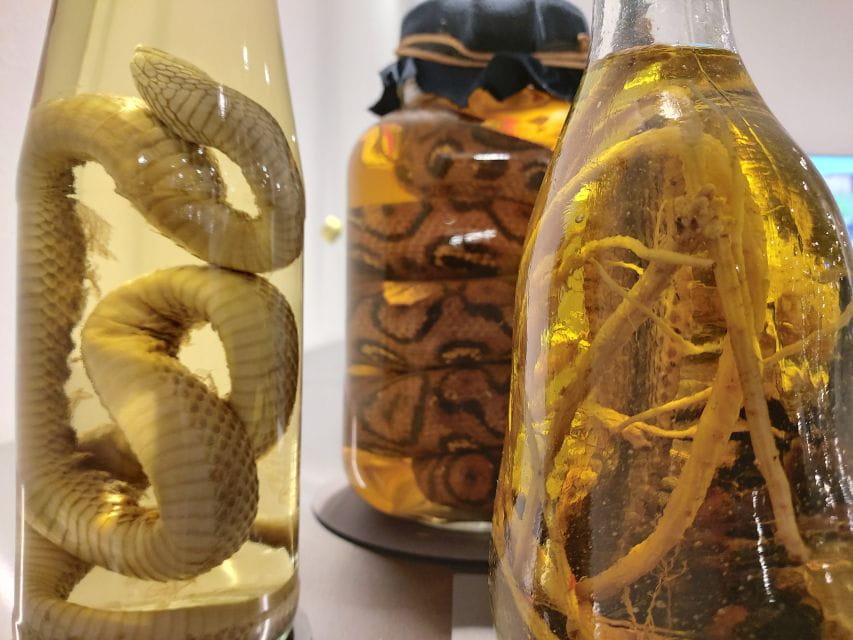
Faced with the mounting pressures of population growth, resource depletion, and climate change, the future of global food production and consumption presents both daunting challenges and promising opportunities for innovation. From sustainable farming practices to alternative protein sources, the food industry must adapt to ensure sufficient, nutritious, and environmentally-friendly options for the world’s growing population. As the Disgusting Food Museum showcases, rethinking our relationship with food can lead to greater food security and reduced waste. The future of food may very well lie in exploring the diverse culinary traditions and untapped resources our planet has to offer.
| Challenges | Opportunities | Innovations |
|---|---|---|
| Population Growth | Sustainable Agriculture | Alternative Proteins |
| Resource Depletion | Food Waste Reduction | Urban Farming |
| Climate Change | Diverse Food Sources | Precision Fermentation |
| Nutritional Deficiencies | Consumer Education | Smart Food Packaging |
Taste buds happy? More delicious discoveries we love in Berlin
Tasting Experience at the Museum
The Disgusting Food Museum’s Tasting Bar allows visitors to sample some of the unusual and often surprising food items on display.
Guests can experience firsthand the diverse flavors and textures that challenge conventional perceptions of what’s deemed edible.
From mite-infested cheese to pungent fermented fish, the tasting experience invites an exploration of global culinary traditions.
While some items may seem off-putting at first, the museum encourages an open-minded approach, fostering a deeper understanding of the cultural and nutritional significance of these unconventional foods.
The tasting is suitable for all ages, providing a unique opportunity to broaden one’s gastronomic horizons in a safe and educational setting.
Accessibility and Booking Information
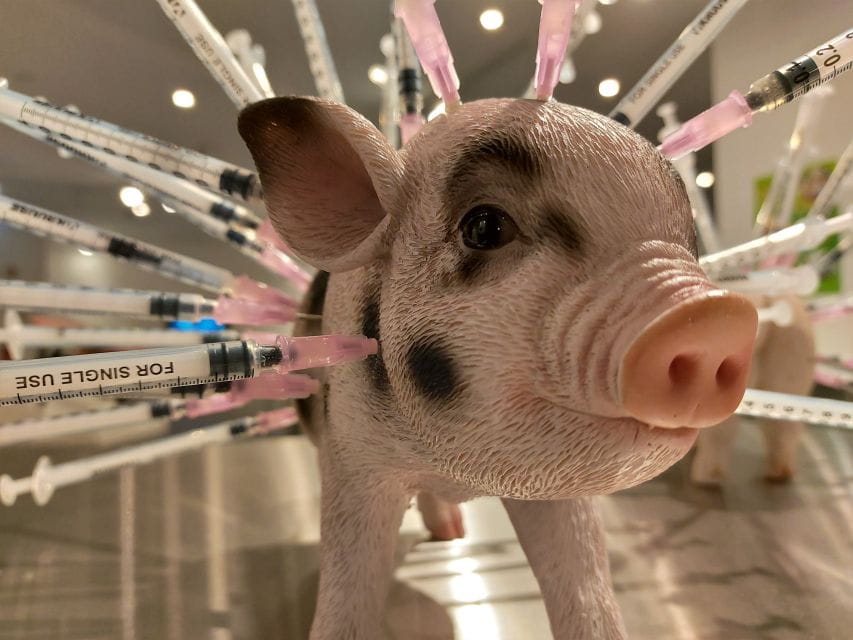
The Disgusting Food Museum is wheelchair accessible, allowing visitors of all mobility levels to explore the exhibits and tasting experience.
Guests can reserve their tickets in advance through the museum’s website, taking advantage of a flexible booking system that allows them to pay later.
The museum offers several convenient options for visitors:
- Reserve tickets online and pay upon arrival to avoid long queues.
- Enjoy the flexibility to change or cancel bookings without penalties.
- Take advantage of family-friendly pricing and discounts for students and seniors.
With its accessible facilities and hassle-free booking process, the Disgusting Food Museum ensures a seamless and enjoyable experience for all its guests.
Highlights of the Museum Visit

Visitors to the Disgusting Food Museum can expect to be immersed in a one-of-a-kind experience that challenges their preconceptions about food.
Through the museum’s extensive collection of over 90 exhibits, guests will have the opportunity to discover a diverse range of unusual and often unsavory culinary items from around the world.
From mouse wine and mite cheese to stinky fish and edible worms, the displays explore the depths of food diversity and nutrition.
Beyond just viewing the exhibits, visitors can venture to the Tasting Bar to sample some of these extraordinary food items, providing a truly visceral encounter with the emotion of disgust.
The museum invites guests to contemplate current issues and the future of food through this thought-provoking experience.
Frequently Asked Questions
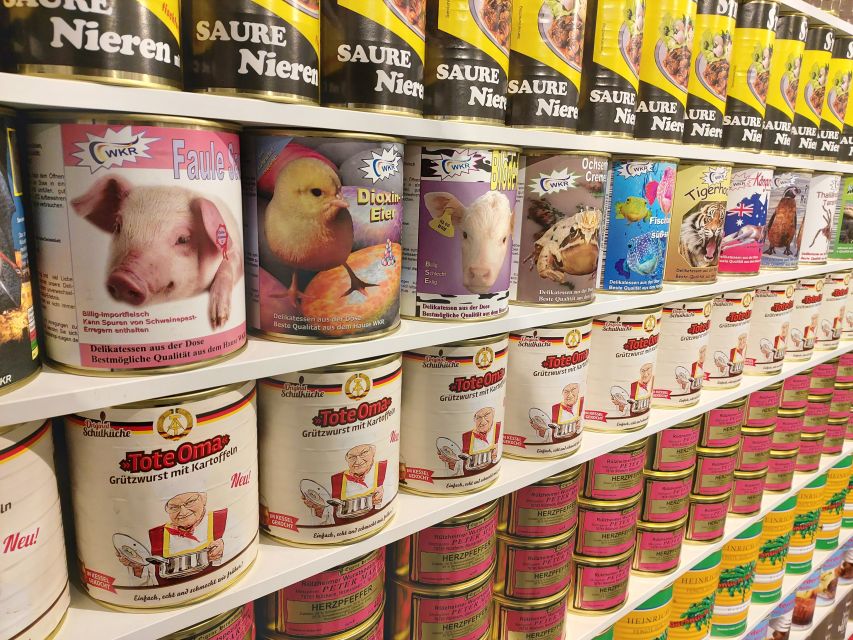
What Is the Dress Code for Visiting the Museum?
There is no specific dress code for visiting the Disgusting Food Museum. Visitors can wear comfortable, casual clothing. The museum experience is focused on exploring the exhibits and sampling unusual food items, rather than formal attire.
Can Visitors Take Photos or Videos Inside the Exhibits?
Visitors are generally allowed to take photos and videos inside the Disgusting Food Museum exhibits. However, they should respect any signage or instructions prohibiting photography in certain areas. Discretion is advised when capturing sensitive or disturbing exhibits.
Are There Any Dietary Restrictions for the Food Tasting?
The museum accommodates visitors with dietary restrictions. Visitors can opt out of the tasting experience if they have any allergies or aversions. The museum provides alternative activities to engage with the exhibits without consuming the food samples.
Is There a Gift Shop at the Museum?
Yes, the Disgusting Food Museum in Berlin has a gift shop. Visitors can browse and purchase a variety of souvenirs and gift items related to the museum’s unique and fascinating exhibits.
What Is the Average Time Spent Exploring the Museum?
The average time spent exploring the Disgusting Food Museum is around 1-2 hours. Visitors can spend time viewing the exhibits, sampling unusual food items, and learning about the diversity and future of food.
Recap
The Disgusting Food Museum in Berlin offers a thought-provoking exploration of the diversity of global cuisine.
Visitors can confront their preconceptions about edibility, learn about the social and ecological factors shaping food, and even sample unusual delicacies.
This unique experience encourages critical thinking about sustainable and ethical food choices, broadening perspectives on what nourishes us.
More Food & Drink Experiences in Berlin
More Tickets in Berlin
More Tour Reviews in Berlin
Not for you? Here's more things to do in Berlin we have recnetly reviewed
- Potsdam: 5-Hour-Tour “Parks & Palaces” from Berlin by VW-Bus
- Berlin: guided canoe | kayaktour
- Berlin: 3-Hour Guided Small Group Fat Tire E-Scooter Tour
- Rickshaw private driver, shared Guide Berlin Highlights
- Berlin: Madame Tussauds Happy Hour Ticket
- Berlin: Green City Guided Bike Tour
- VIP Warnemünde-Berlin: Private Shore Excursion with a Van
- Understanding Kreuzberg: The roots of local (sub)culture
- Tranfer with small or Bigger introduction Tour Berlin
- Private Tour – Highlights of Berlin for Families
- Berlin: Germany’s Very first Craft Beer Tour and Experience
- Private Highlights of Berlin Bike Tour
